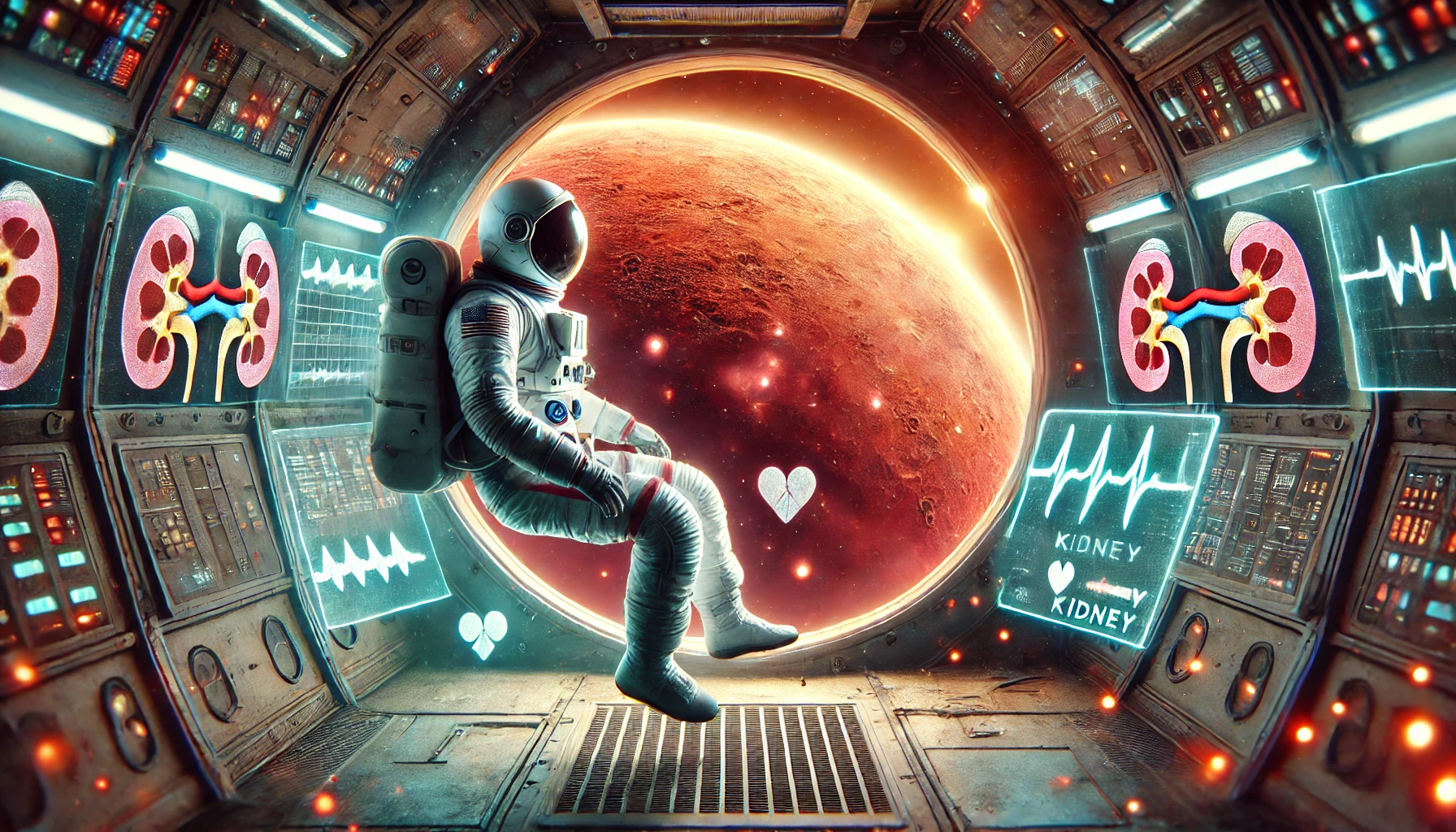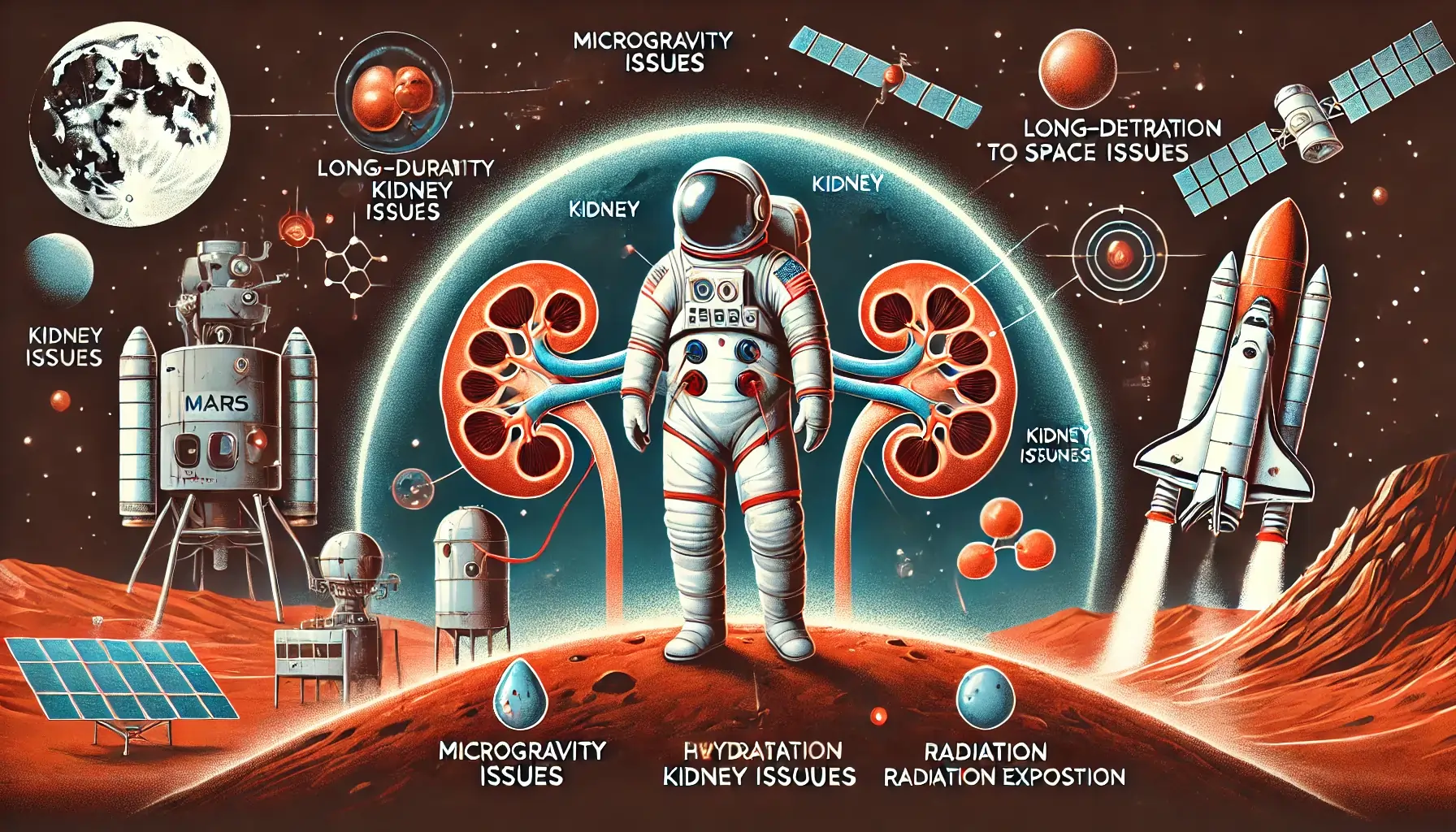As humanity sets its sights on Mars, the challenges of space travel extend beyond engineering and propulsion systems. One of the critical concerns highlighted in a recent study is the potential impact of space travel on kidney health. The findings, detailed in an article on New Atlas, suggest that astronauts on a mission to Mars could face significant kidney issues, potentially leading to dialysis. This blog post delves into why space travel could compromise kidney function and what this means for future Mars missions.

The Impact of Space Travel on Kidney Health
The human body is not naturally equipped for the harsh conditions of space. Microgravity, radiation, and the confined environment of spacecraft all pose risks to astronaut health. Among these risks, kidney health has emerged as a significant concern.
Microgravity and Kidney Function of Space Travel
In the microgravity environment of space, bodily fluids redistribute, affecting how kidneys filter waste and maintain fluid balance. This can lead to several issues:
- Fluid Redistribution: Microgravity causes fluids to shift toward the upper body, increasing the risk of kidney stones and impairing the kidneys’ ability to filter blood effectively.
- Dehydration: Despite the fluid shift, astronauts often experience dehydration. Dehydration can exacerbate kidney stone formation and strain kidney function.
- Calcium Leaching: Bone density loss in microgravity releases calcium into the bloodstream, increasing the risk of kidney stones.
Radiation Exposure
Space radiation is another significant concern. Exposure to cosmic rays and solar radiation can damage kidney cells and impair their function. Over long-duration missions, such as a trip to Mars, this radiation exposure can accumulate, posing severe risks to kidney health.
Limited Medical Resources
On Earth, kidney issues can be managed with medications and treatments such as dialysis. However, in the isolated environment of a spacecraft or a Mars habitat, access to medical resources is limited. This limitation underscores the importance of preventive measures and monitoring kidney health during space missions.
The Risks of Kidney Stones and Dialysis
Kidney stones are a primary concern for astronauts. These hard deposits can cause severe pain and block the urinary tract, leading to complications that may require medical intervention. In the worst-case scenario, compromised kidney function could necessitate dialysis—a procedure that is challenging to perform in space due to the need for specialized equipment and sterile conditions.
Potential Solutions and Preventive Measures
Addressing the risks to kidney health in space requires a multifaceted approach:
- Hydration Strategies: Ensuring astronauts maintain adequate hydration is crucial. Monitoring fluid intake and developing effective hydration protocols can help mitigate the risk of kidney stones.
- Dietary Adjustments: Diet plays a critical role in kidney health. Adjusting the diet to reduce calcium and oxalate intake can help prevent kidney stone formation.
- Medical Monitoring: Regular monitoring of kidney function through blood and urine tests can help detect early signs of kidney issues. Portable diagnostic tools and telemedicine support can aid in ongoing health assessments.
- Protective Measures Against Radiation: Implementing shielding technologies and protective measures can help reduce radiation exposure, protecting kidney cells from damage.
The potential impact of space travel on kidney health is a critical consideration for future Mars missions. By understanding the risks and implementing preventive measures, we can better protect astronauts and ensure the success of long-duration space exploration. For more detailed information on the study and its findings, you can read the full article on New Atlas here.
More blogs: https://sleepingsirens.com

